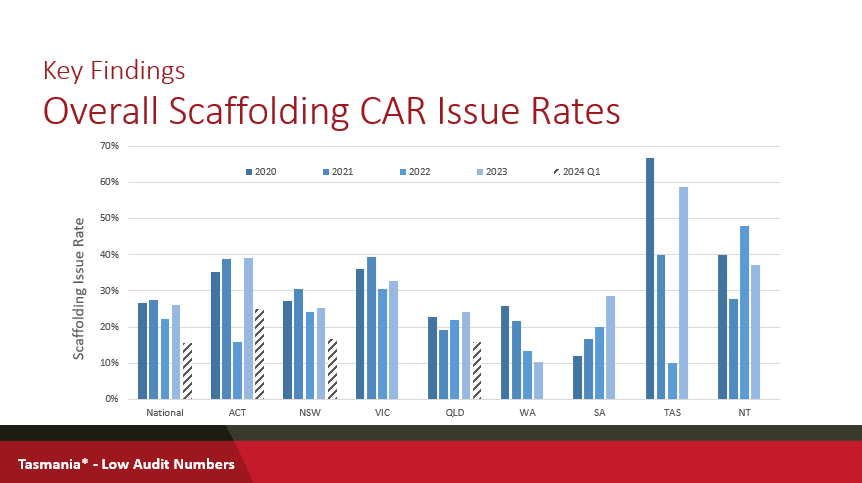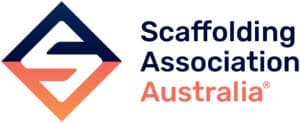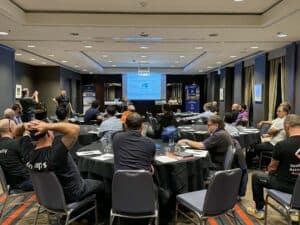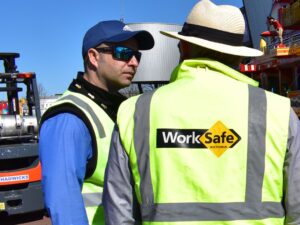SAA participates in OFSC roundtable discussions on scaffolding safety
Members of the Scaffolding Association Australia Board of Directors, State Chairs & Committee members were very pleased to be invited to participate in the Office of Federal Safety Commissions roundtable discussions on scaffolding safety in both Melbourne and Sydney recently.
The Melbourne roundtable was held on 29th May 2024 and included our Executive Director and Vic State Chair, Jordy Adshead (Base Industries), as well as Committee & SAA Members Paul Allwood (Layher), Mike Adshead (Base Industries), as well as our Chair & Managing Director, Rob Thiess (Construc).
The Sydney roundtable was held on 13th June 2024 and included our NSW State Chair, Mark Corkery (Scaffold Studio), as well as Committee & SAA Members Keaton Owen (Scaffold Safety), Brad Leggett (Layher), Mark Mitchell (Above Scaffolding), Scott Butlin (Australian Scaffold & Access), JB de Wit (At-Pac), Erin Zumot (Scaffold Studio) as well as our Executive Director, Jordy Adshead (Base Industries) and Chair & Managing Director, Rob Thiess (Construc).
Background
The Office of the Federal Safety Commissioner ran during 2020-2021 a safety campaign focused on scaffolding. At the time they found some alarming rates of non-compliance with accredited building companies frequently failing to have a scaffolding plan, build to a scaffold to plan, have it inspected before use, get changes signed off and inspect the scaffold every 30 days. While they have since seen some small improvements over the past few years, non-compliance rates remain high.
The roundtable events were an opportunity to bring Melbourne-based & Sydney-based principal contractors, scaffolders and designers/engineers together to compare issues they are seeing across industry and discuss how we might be able to fix them.
Last year, the OFSC ran a similar Roundtable in Queensland (of which we were also involved) to deep dive into some of the issues concerning safety trends in the industry relating specifically to scaffolding. Through the Melbourne & Sydney Roundtables, the OFSC aims to cross-validate some of their initial findings to determine if jurisdictions face the same or different challenges and seek views from us as industry experts to identify key problem areas and discuss ways we can address this from a broader industry perspective.

The national trend (left) can be observed in most states and territories with low rates across the country in 2022, before higher CAR issue rates in 2023.
Summary of Outcomes from the Melbourne & Sydney Scaffolding Safety Roundtables
- National Standard/Code: There is a strong call to develop a unified model national scaffolding code, which then allows for flexible adoption by the states and territories. A national code would address current inconsistencies arising from numerous standard documents, ensuring uniform safety and operational guidelines across the industry.
- Standardised Qualifications and Training: The industry is affected by inconsistent safety standards due to the lack of standardised qualifications and minimum competency training programs for scaffolders. Proper training (e.g. formal certification, verification of competency) should be mandatory for anyone erecting or interacting with scaffolding to ensure safety.
- Competency of Engineers and Designers: There is no formal qualifications or training required of scaffolding designers and engineers, raising concerns about competency and education standards. Ensuring these professionals are properly qualified is essential for maintaining high safety standards.
- Scaffolding Tampering: There is a critical need for thorough education and training at all levels to prevent scaffold tampering and ensure adherence to safety protocols. To improve industry standards, there must be severe consequences for any scaffold tampering, emphasising the importance of safety.
Next Steps
It is clear from the Roundtable discussions that addressing the issues raised will help improve scaffolding safety standards within the construction industry.
In terms of next steps, the OFSC will now consolidate its findings from this and other recent roundtables held on scaffolding safety to explore possible solutions that can be implemented by them in collaboration with stakeholders.
The Scaffolding Association Australia appreciates the invitations we received to participate in these scaffolding safety roundtable events and we look forward to further collaboration with the OFSC to continue to tackle the issues in our industry.






